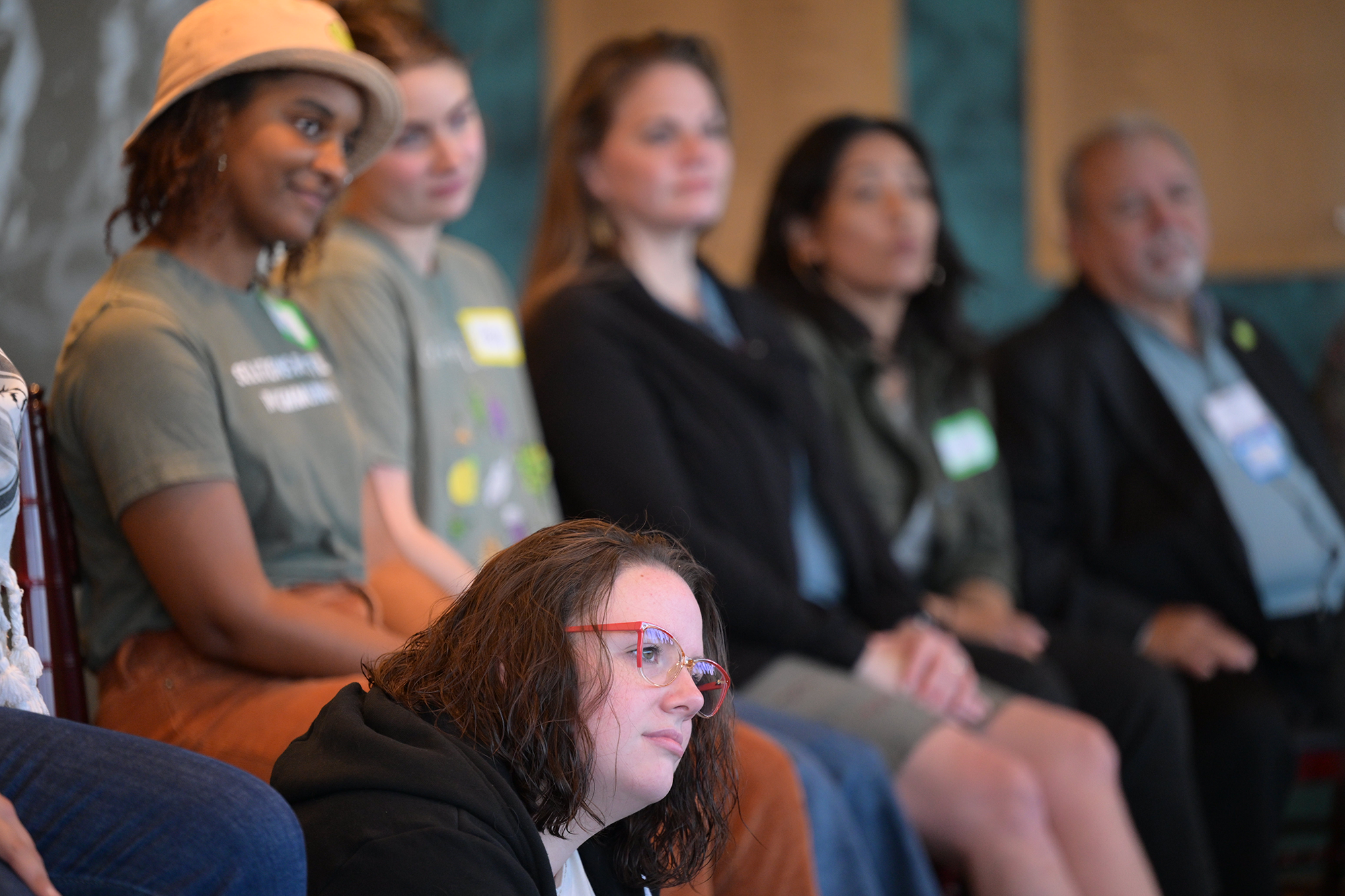
In this week’s Principle 6 Newsletter, guest author Maurice Smith argues that cooperation, like democracy, is an “experiment” that can benefit from innovation.
“Innovation is an endless exploration of what remains to be discovered about ourselves and our communities,” Smith writes. “Innovation is also having the courage to be uncomfortable. It forces us to be critical of our successes and achievements. It pushes us to our limits. Innovation fuels the experiments necessary to uncover opportunities.”
Read the full newsletter below, and consider how “cooperation among cooperatives” could spur innovation within the co-op movement. NCBA CLUSA is on a mission to document Principle 6 collaborations across the country so we can identify trends, document best practices and share this knowledge with you—our fellow cooperators!
Share your example of Principle 6
Principle 6 Newsletter – Cooperative Democracy: Old Fashioned Innovation
April 20, 2022
We the People of the United States, in Order to form a more perfect Union, establish Justice, insure domestic Tranquility, provide for the common defense, promote the general Welfare, and secure the Blessings of Liberty to ourselves and our Posterity, do ordain and establish this Constitution for the United States of America. – Preamble, United States Constitution

In 1776, a new form of democracy was launched. To convince the new citizens of the importance of this form of government, a series of arguments were made in publications called The Federalist Papers.
In Federalist Paper Number No. 50, James Madison and Alexander Hamilton referred to this newly fashioned form of government as an experiment. These words ring as true today as they did when our country was a young version of itself. As the nation has matured, we continue to grapple with the ideals that initially formed our collective psyche.
In 1844, the cooperative form of democracy was penned by the Rochdale Cooperatives. This exercise led to a worldwide movement for cooperatives in nearly every sector of society. The cooperative founders no doubt had ideas about what democracy meant for these new fledging organizations. Today, cooperatives continue to define and reestablish the meaning of democracy in contemporary terms.
Today, cooperatives continue to define and reestablish the meaning of democracy in contemporary terms.
I argue that cooperative democracy is every bit the experiment referenced by Hamilton and Madison in Federalist Paper 50. It argued that confederation among sovereign states was necessary for the health of the unity. Democracy at this scale was an experiment for its novel approach, ideals and principles.
An experiment suggests work and progress remains unfinished. It is important to hold onto the experimental element of our cooperative governance. This recognition is imperative for the need to seek innovation.
An experiment suggests that answers remain undiscovered. The search for new truths and innovations are only possible when we acknowledge that we continue a journey. Otherwise, we assume all knowledge has been secured, which preempts the need for continuing the search. I would like to believe that where we stand today is not the destination.
I would like to believe that where we stand today is not the destination.
When it comes to Cooperative Democracy, the experiment continues. If we acknowledge a journey remains, we avail ourselves to the possibilities that opportunities for innovation persist.
Cooperative democracy is not an old-fashioned tenet, but a living breathing foundation of the movement. Democracy is ever evolving as society changes. It would be ill-advised to rest on the misconception that democracy in any form is incapable of improvements.
Democracy is not so locked in time that it cannot be improved with innovation. Let’s consider the expansionism of thoughts on democracy since the great experiment began. Our society at large debates issues around representation, the meaning of citizenship, and who should participate in public policies. One should expect these discussions to infiltrate the inner workings of cooperatives.
If democracy is an experiment, then we still have an opportunity to improve upon a model that is centuries old. We can’t rest on the idea of an experiment without facing the need for innovation. The ideation of cooperative democracy is innovation itself. Let’s explore how innovation energizes cooperative experimentation.
If democracy is an experiment, then we still have an opportunity to improve upon a model that is centuries old.
Innovation is the personification of restlessness. Innovation is never satisfied. It seeks answers to questions that may not have been asked. Innovation goes looking for problems. Innovation is an endless exploration of what remains to be discovered about ourselves and our communities.
Innovation is also having the courage to be uncomfortable. It forces us to be critical of our successes and achievements. It pushes us to our limits. Innovation fuels the experiments necessary to uncover opportunities.
Innovation proves some hypotheses and disproves other static notions. The experiment factor prompts us to look in some new places. Innovation expands conversations and invites new audiences to the town hall of public debate. Innovation leads to new truths and the dismantling of myths.
There are signals that suggest democracy is ripe for innovation, no matter the existing form of cooperative practices. At the heart of democracy is the basic representation of its members. If members feel disenfranchised by a construct that fails to reflect the social, economic, and cultural values of the community, the democratic structure can benefit from innovation.
When the principle of democracy is deemphasized in a cooperative, members lose a piece of their identity.
Cooperative democracy that does not elevate itself robs a membership of self-awareness. One of the virtues of a democratic society is the empowerment it affords citizens to know and defend their inalienable rights. Cooperative democracy is strengthened by an informed and energized membership.
When the principle of democracy is deemphasized in a cooperative, members lose a piece of their identity. Innovation enters as an opportunity to reinforce a core value that strengthens the membership. Cooperatives can experiment with messages and methods to give their members a clear understanding of the respect and influence that they deserve.
The cooperative movement cannot afford to see democracy as a settled matter. Society today is different from how the world looked in 1844. We have opportunities to understand our communities in ways that are more intricate and comprehensive than any other time in history.
Stay tuned,
Maurice


